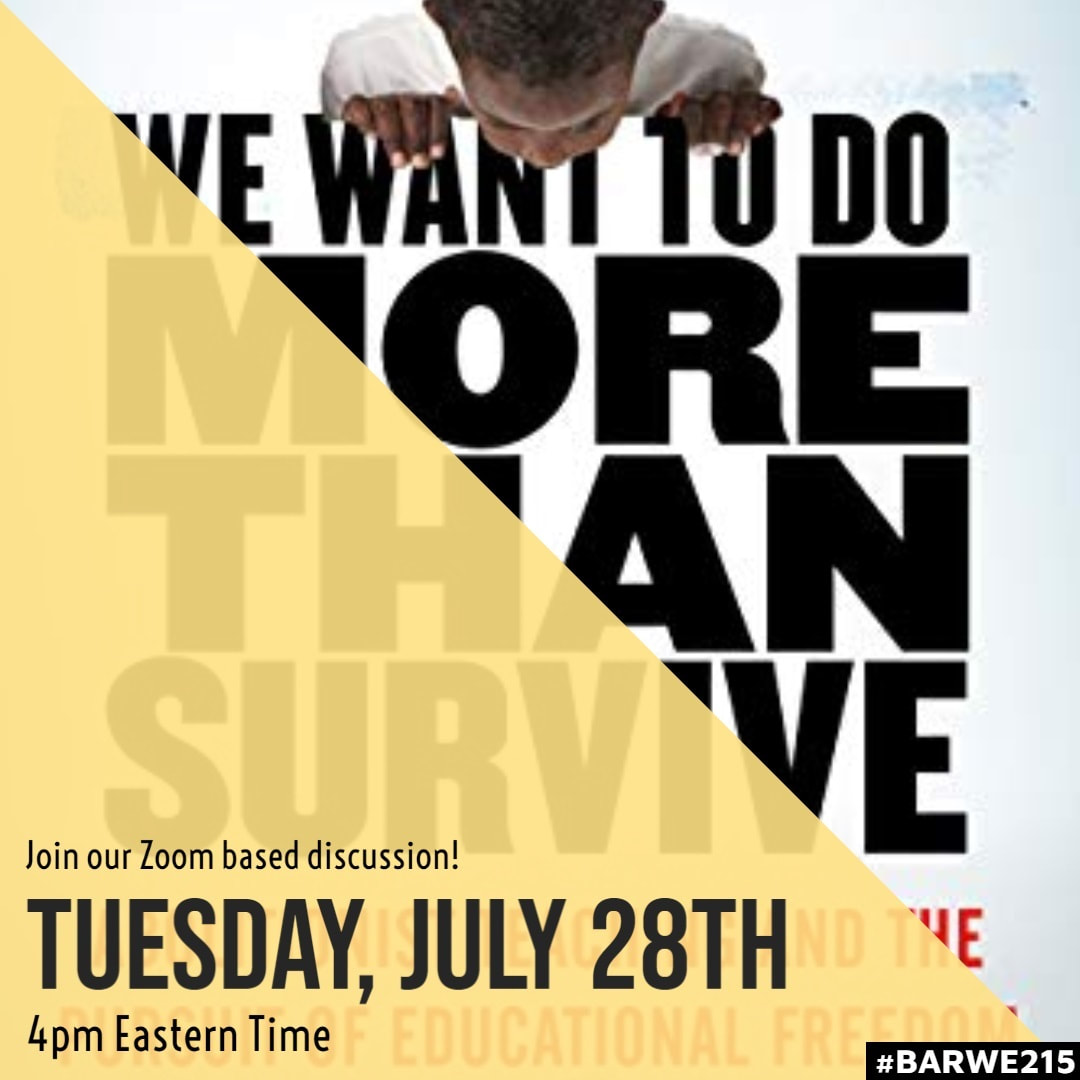- About Us
-
Inquiry Series
-
Current Year 23 - 24 School Year
>
- June: End of Year Reflection
- May: How do we support students of color navigating admissions processes?
- April: How do we support students and teachers when they face backlash for speaking out for racial justice?
- March: How can we find inspiration in white antiracists currently doing this work?
- February: How can we learn from white anti-racists of the past?
- January: How can you build solidarity across differences?
- December: How do we give ourselves space to process when we feel stuck/overwhelmed/enraged?
- November: How do we fight back against attacks on racial and gender justice education?
- October: Why is it important to understand both the history of CRT and what it has come to mean?
- September: How do we keep the focus on race as we engage in antiracist reflective practice?
- Previous Inquiry Series
- Inquiry Resources >
-
Current Year 23 - 24 School Year
>
-
Summer Events
- Writings
Discussion Questions (Chapters 1-4):
1. Love uses the term spirit murdering. “These school attacks also spirit-murder dark children...racism robs dark people of their humanity and dignity and leaves personal, psychological, and spiritual injuries. Racism literally murders your spirit. Racism is traumatic because it is a loss of protection, safety, nurturance, and acceptance - all things children need to be educated. The White rage in our schools murders dark students’ spirits. Physical survival is not enough.” (38)
How have you or your schools been complicit in spirit murdering Black and Brown children?
2. Bettina Love describes how Black girls face “age compression” and racist ideas of Black womanhood (5). She goes on to write that “Intersectionality also allows educators to dialogue around a set of questions that will lead them to a better sense of their students’ full selves…Mattering cannot happen if identities are isolated and students cannot be their full selves” (7)
When have racist ideas intersected with other biases in your schools/classroom and served to isolate our students’ identities? How do we use an intersectional justice lens to create spaces and curriculum that affirm our students’ full selves?
3. “Students no longer learn to be informed and active citizens, which is key to democracy; instead, they learn to comply and recite affirmations about their grit.” (70)
How has this deficit model of “character” education affected your classroom practice? How can you acknowledge and build off of the grit, perseverance, and character that students already show in their lives?
4. “White, well-meaning, liberal teachers can be racist too. Therefore, understanding how racism works and understanding how White privilege functions within our society does not bring us any closer to justice, and it certainly does not undo the educational survival complex. Knowing these truths is the first step to justice, but it’s only a start.” (51)
How are you moving beyond just knowing about oppression to actively confronting your bias and the white supremacy within your school and school system?
1. Love uses the term spirit murdering. “These school attacks also spirit-murder dark children...racism robs dark people of their humanity and dignity and leaves personal, psychological, and spiritual injuries. Racism literally murders your spirit. Racism is traumatic because it is a loss of protection, safety, nurturance, and acceptance - all things children need to be educated. The White rage in our schools murders dark students’ spirits. Physical survival is not enough.” (38)
How have you or your schools been complicit in spirit murdering Black and Brown children?
2. Bettina Love describes how Black girls face “age compression” and racist ideas of Black womanhood (5). She goes on to write that “Intersectionality also allows educators to dialogue around a set of questions that will lead them to a better sense of their students’ full selves…Mattering cannot happen if identities are isolated and students cannot be their full selves” (7)
When have racist ideas intersected with other biases in your schools/classroom and served to isolate our students’ identities? How do we use an intersectional justice lens to create spaces and curriculum that affirm our students’ full selves?
3. “Students no longer learn to be informed and active citizens, which is key to democracy; instead, they learn to comply and recite affirmations about their grit.” (70)
How has this deficit model of “character” education affected your classroom practice? How can you acknowledge and build off of the grit, perseverance, and character that students already show in their lives?
4. “White, well-meaning, liberal teachers can be racist too. Therefore, understanding how racism works and understanding how White privilege functions within our society does not bring us any closer to justice, and it certainly does not undo the educational survival complex. Knowing these truths is the first step to justice, but it’s only a start.” (51)
How are you moving beyond just knowing about oppression to actively confronting your bias and the white supremacy within your school and school system?
